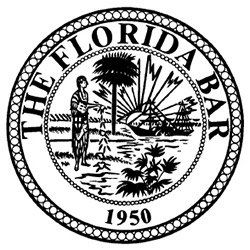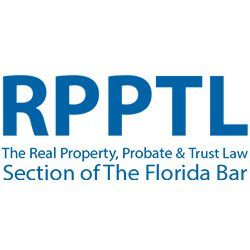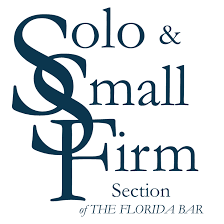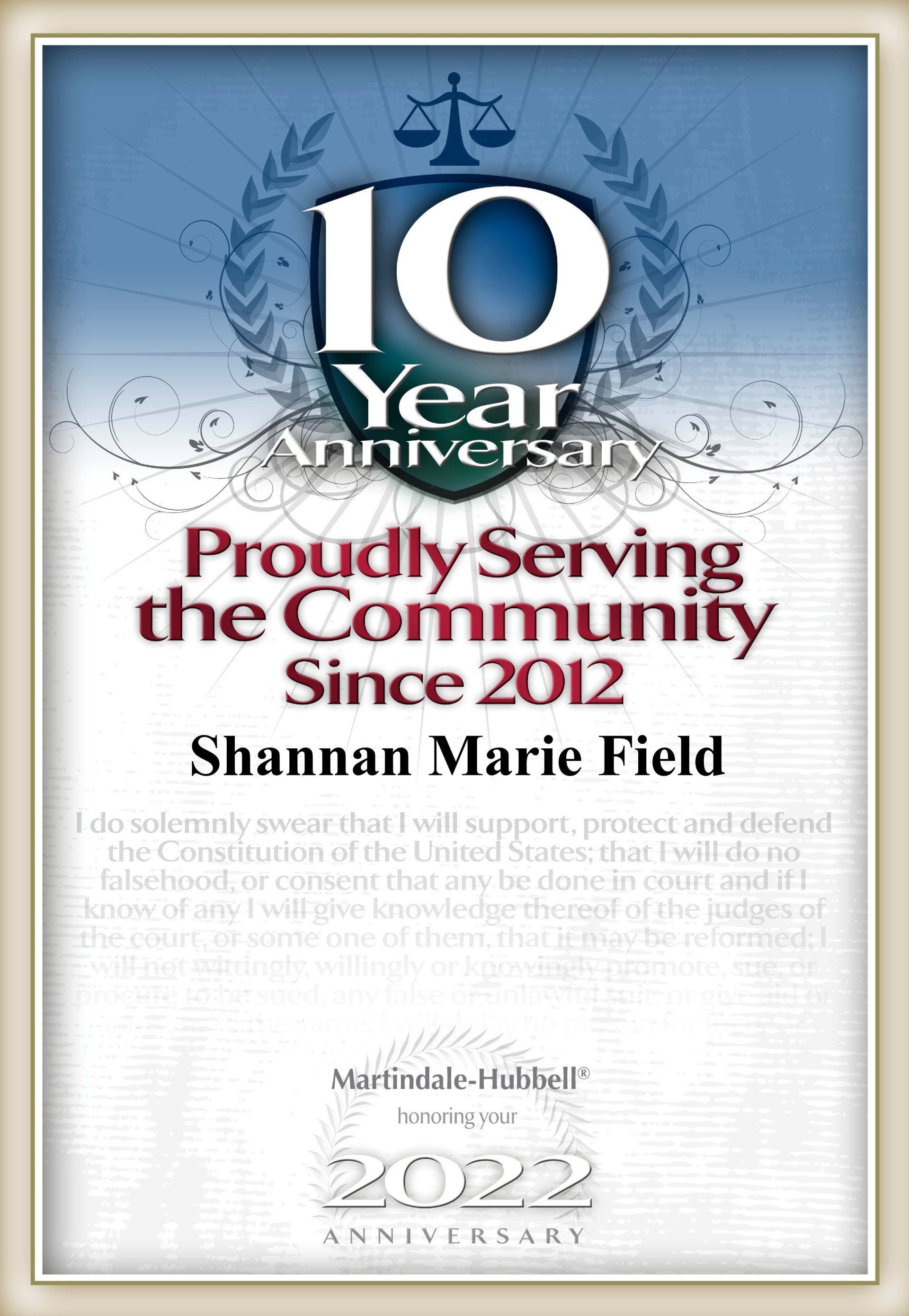Recent Amendments Bring Important Changes to Florida’s Elective Share
by Lauren Y. Detzel and Brian M. Malec
In 2013, the Real Property, Probate and Trust Law (RPPTL) Section of The Florida Bar convened an ad hoc committee to take a fresh look at Florida’s elective share laws, 1 with the objective of identifying and remedying certain issues that, over the years, practical experience proved to be in need of change. Prior to their study, Florida’s elective share laws had not been substantially revised since 1999. While not every recommendation of the committee survived legislative scrutiny, amendments enacted during the 2016 and 2017 legislative sessions provide additional protections for surviving spouses and should contribute toward the timely and equitable resolution of elective share disputes. This article discusses many of the important statutory changes made during the prior two years, including the motivation for enacting such changes.
Elective Share Is a Floor, Not a Ceiling
Prior to 1999, Florida law provided a surviving spouse could elect to receive at least 30 percent of the decedent’s
probate
estate.
2
By limiting the elective share to only probate assets, it became all too easy for a decedent to disinherit a spouse, because nonprobate transfers, such as retirement accounts, life insurance, transfer-on-death accounts, and revocable trust assets, were excluded. This changed in 1999 when Florida’s elective share laws were substantially revised
3
to replace the decedent’s probate estate with an elective estate concept that incorporated virtually all nonprobate assets of a decedent in addition to probate assets.
4
It was not until these changes were enacted that the elective share truly promoted Florida’s general public policy of protecting surviving spouses.
For years, many practitioners understood the elective share to provide the baseline for the minimum amount that a decedent must leave his or her spouse; one could always leave more, but not less. Therefore, Florida attorneys routinely advised surviving spouses in situations in which the adequacy of such spouse’s inheritance was uncertain that they could not be disadvantaged by making the election. The elective share, in essence, was viewed as a protective election. If it was determined during the administration that the decedent left assets to the surviving spouse totaling more than 30 percent of the elective estate, then the spouse would retain the inheritance he or she received via probate and nonprobate transfers. On the other hand, if it was determined that the decedent left the surviving spouse assets totaling less than 30 percent of the elective estate, the beneficiaries of the decedent’s other assets were obligated to remedy the shortfall. This understanding seemed consistent with the overall policy of protecting surviving spouses, especially considering that it was not uncommon for an estate to take several months, or even years, after the deadline for filing the election to calculate the final value of the elective estate.
Florida’s elective share was unexpectedly turned on its head in December 2015, however, when the Third District Court of Appeal issued a per curiam affirmed opinion in the case of Richardson v. Perez , 207 So. 3d 886 (Fla. 3d DCA 2015). In Richardson , the surviving spouse timely filed for the elective share within six months of the decedent’s death and did not withdraw her election within eight months of the decedent’s death in accordance with §732.2135(3). Upon calculating the elective share, it was determined the surviving spouse would receive more than 30 percent of the decedent’s elective estate when the cash and real property gifted to her under the decedent’s will were augmented by the nonprobate assets passing to her. The trial court ruled that the elective share operated as an election to take against the decedent’s will, and that, by making the election, the surviving spouse forfeited her right to receive assets in excess of 30 percent of the elective estate. In other words, the election operated to cap the surviving spouse’s inheritance at the elective share amount. The Third District’s decision to affirm the trial court’s ruling without a written opinion shocked many in the Florida probate community because several prominent practitioners, including some who had even worked on the drafting committee for the 1999 overhaul of the election share regime, believed the law was clearly the opposite.
Recognizing the significant impact that Richardson could have on Florida’s elective share, an eleventh-hour amendment aimed at overturning Richardson was inserted into House Bill 540 during the 2016 legislative session. Specifically, clarifying language was added to §732.201 stating, “The election does not reduce what the spouse receives if the election were not made and the spouse is not treated as having predeceased the decedent.” The final bill also included a statement of legislative intent that the amendment to §732.201 was made to clarify existing law. 5 Thus, once House Bill 540 was enacted on April 6, 2016, the amendment to §732.201 could be applied to all pending elective share proceedings as of that date.
Extension of Time to File
Under prior law, §732.2135 generally provided the surviving spouse must file an elective share election on or before
the earlier of
1) six months after service of the notice of administration on the spouse, attorney-in-fact, or guardian of property of the spouse, or 2) two years after the decedent’s death. A surviving spouse or an attorney-in-fact or guardian of the property of the spouse, however, could petition the court for an extension of time to make the elective share election as long as the petition was filed within such six-month or two-year period, as applicable. Extensions were typically filed in cases in which assets of the decedent or their value could not be finally determined within the six-month period.
Section 732.2135(2) was amended in the 2017 legislation to extend the time period in which a petition for an extension of time to make the elective share election can be filed. Specifically, the surviving spouse, attorney-in-fact, or guardian of the property of the surviving spouse may now file an extension of time to make the election within the later of 1) the time period provided under prior law, or 2) 40 days after the termination of any proceeding effecting the amount that the spouse is to receive for the elective share. The drop-dead deadline for the spouse to file for an extension, however, remains two years after the decedent’s death.
One example of why this change was necessary is when the decedent’s testamentary disposition is contested after the six-month election period, which, if successful, would reduce the amount the surviving spouse inherits. For example, suppose wife ’s will disinherits son and leaves all of her estate to husband . Suppose, further, that son does not receive a notice of administration, but husband does. Husband may decide not to file for the elective share within the six-month election period assuming the will to be valid, and that he will receive all of wife ’s estate. Suppose, finally, that son files a will contest six months and one day after husband was served with notice of administration. Son ’s will contest is timely because he never received a notice of administration, but under prior law, it would then be too late for husband to make the election to take the elective share. The amendments to §732.2135(2) now permit husband in these circumstances to petition the court for an extension of time to file for the elective share.
Homestead
Under prior law, the manner in which the marital residence was titled at the decedent’s death could have a dramatic impact on the amount of the elective share to which the surviving spouse was entitled. This anomaly resulted from the interplay between Florida’s homestead laws, under which a surviving spouse can receive a life estate, fee simple title, or a one-half tenants in common interest (depending on circumstances), and the differing treatment under the elective share statute of protected homestead versus tenants by the entireties property. Specifically, property that was protected homestead
6
of a decedent was excluded from the elective estate whether held by the decedent individually or by a trust at the decedent’s death,
7
and it was not an asset to be considered for purposes of satisfying the elective share.
8
In contrast, if the homestead was held as a tenants by the entireties (a common ownership alternative), then 50 percent of the value of the homestead was included in the elective estate and credited toward satisfying the elective share.
9
Accordingly, the surviving spouse of a decedent with protected homestead of significant value often received more upon the decedent’s death than a surviving spouse that owned property with the decedent as tenants by the entireties solely because of the asset titling.
Amendments have been made to the treatment of protected homestead under various sections of Ch. 732 aimed at minimizing the potential discrepancies in the amount a surviving spouse receives that may result from individual versus tenants by the entireties ownership of the homestead. Specifically, §§732.2035 and 732.2055 now include in the elective estate 50 percent of the net value of the protected homestead if the spouse receives a life estate 10 or elects to take a one-half tenants in common interest, or 100 percent of the net value if the spouse receives a fee simple interest. The same value for the interest included in the elective estate is counted toward satisfying the elective share. The protected homestead is still excluded from the elective estate, however, if the spouse has waived his or her homestead rights under §732.702, and the spouse does not actually receive any interest in such homestead upon the decedent’s death. 11 Maintaining this exclusion ensures that a surviving spouse who has waived homestead rights does not indirectly receive any benefit from the value of the homestead by claiming an elective share.
The impact of the statutory changes to the treatment of the protected homestead becomes evident with a simple example. Assume husband has one adult descendant from a prior marriage and assets consisting of a protected homestead worth $400,000 and cash and marketable securities totaling $1 million. Husband dies and attempts to disinherit wife by bequeathing his entire estate to descendant . Under prior law, wife would receive a total of $500,000 of assets from husband , comprised of an elective share of $300,000 (30 percent of $1 million elective estate) in addition to either a life estate or one-half tenants in common interest in the homestead valued at $200,000. 12 If the residence was owned by husband and wife as tenants by the entireties, however, wife would only receive assets totaling $360,000 (30 percent of $1.2 million elective estate), which was satisfied by husband ’s 50 percent interest in the residence valued at $200,000 and an additional $160,000 of cash and securities. 13 Accordingly, wife would receive substantially more of husband ’s assets if the residence was owned solely by husband .
Under the 2017 amendments, the elective estate totals $1.2 million in the above example if the residence is husband ’s protected homestead, because the portion of the homestead included in the elective estate is one-half of its fair market value. Likewise, the elective estate totals $1.2 million if the residence is owned as tenants by the entireties by husband and wife . Therefore, wife will receive assets totaling $360,000 in satisfaction of the elective share regardless of whether the residence is owned as protected homestead or tenants by the entireties.
The total value received in satisfaction of the elective share by a surviving spouse under the protected homestead scenario and tenants by the entireties scenario will not always be equal under the 2017 amendments. The composition of the family and the assets at issue, coupled with the value of the homestead in relation to the aggregate value of the nonhomestead assets, will directly influence the outcome. Such amendments, however, should reduce, and in many cases eliminate, the disparity in a surviving spouse’s inheritance that resulted by virtue of the homestead ownership under prior law.
Attorneys’ Fees and Costs
There are numerous opportunities for disputes to arise in elective share proceedings before the elective share is actually paid, including the composition of the assets that are includible in the elective estate, the value of such includible assets, and even whether the spouse has previously waived the right to the elective share under a marital agreement. Under most circumstances, litigation involving the elective share is rarely quick or inexpensive.
Prior Florida law did not include a clear entitlement for a surviving spouse to recover attorneys’ fees and costs incurred in enforcing the elective share. In fact, surviving spouses had the threat of attorneys’ fees and costs being assessed against them if a court determined the spouse’s pursuit of the election was in bad faith. 14 As a result, it was not uncommon in the committee’s experience for the personal representative of a decedent’s estate to use the threat of lengthy and costly litigation as a tactic to pressure the spouse into settlement. While personal representatives have estate assets at their disposal to fund litigation, surviving spouses who claim the elective share routinely do not have the resources to outlast the estate. Moreover, a surviving spouse who litigated his or her elective share under prior law was basically funding the litigation out of his or her future elective share recovery — as the litigation costs increased, the net recovery decreased. Thus, estates often benefitted from extending litigation until it no longer became worthwhile for the surviving spouse to dispute.
Section 732.2151 has been added to provide a court may award taxable costs as in chancery actions, including attorneys’ fees, for any proceeding involving an objection to, or dispute over 1) the entitlement to, or amount of, the elective share; 2) the property interest included in the elective estate or its value; or 3) the satisfaction of the elective share. Further, the court is granted discretion to direct the payment of such attorneys’ fees and costs from the estate, a party’s interest in the elective share or the elective estate, or other property of a party. 15 Notably absent from the language of §732.2151 is the ability of the court to award attorneys’ fees and costs in uncontested elective share proceedings, such as the attorneys’ fees and costs incurred in preparing and filing the election. 16 Moreover, the award of attorneys’ fees and costs is not limited to a surviving spouse; rather, any party involved in the elective share litigation may make a claim to attorneys’ fees and costs. The “as in chancery actions” standard adopted in §732.2151 is the same standard used in §§733.609, 732.615, 732.616, and 736.1004 for an award of attorneys’ fees and costs for claims for surcharge or to modify or reform a will or trust. This brings the award of attorneys’ fees and costs for contested elective share proceedings in line with nearly all of the attorneys’ fees and costs standards used in the Florida Probate Code and Trust Code.
The well-settled rule in chancery actions is that “costs follow the judgment unless there are circumstances that render application of this rule unjust.” 17 Utilizing this standard in elective share proceedings provides the trial court with the discretion necessary to determine whether, and in what proportion, attorneys’ fees and costs will be awarded. A court may, in its discretion, order that attorneys’ fees and costs follow the result of the suit, that attorneys’ fees and costs are apportioned between the parties, or that all attorneys’ fees and costs be paid by the prevailing party. It is, therefore, possible for attorneys’ fees and costs to be awarded to different parties when multiple issues are litigated depending upon the outcome of each issue. The committee believed this standard would place the court in the best position to decide whether an award of attorneys’ fees and costs is warranted and who is the most appropriate party to receive the award based on the particular circumstances of the case instead of implementing a one-size-fits-all rule entitling the surviving spouse to attorneys’ fees and costs in all elective share contests.
It is important to note that §732.2151 applies to all proceedings commenced on or after July 1, 2017, without regard to the date of the decedent’s death. Accordingly, the surviving spouse of a decedent who died prior to July 1, 2017, has the opportunity to make a claim for attorneys’ fees and costs provided the elective share proceedings were not commenced until on or after July 1, 2017.
Interest on Delayed Distribution
It is not uncommon for the payment of the elective share to be delayed for several years if litigation is involved. Under prior law, this meant the estate (or other holders of nonprobate assets obligated to satisfy the elective share) could retain income, interest, or appreciation generated on the elective share assets while the litigation was ongoing. It was, in essence, an interest-free loan from the surviving spouse. As with the inability to recover attorneys’ fees and costs, estates were effectively rewarded for delaying the payout of the elective share and surviving spouses were, yet again, at a disadvantage for litigating their statutory right to the elective share. It was only 90 days after an order of contribution was entered that the spouse became entitled under prior law to accrue interest at the statutory rate on the unpaid portion of his or her elective share.
18
With some practitioners reporting elective share litigation lasting four or more years, the impact to the surviving spouse was thought to be unjust.
Section 732.2145 has been amended to provide the surviving spouse is entitled to receive interest at the statutory rate on any portion of the elective share that is not satisfied within two years of the decedent’s death, regardless of whether an order of contribution has been entered. The liability for interest falls upon the estate and any direct recipients of property required to contribute toward payment of the elective share. 19 Accordingly, the direct recipient of, for example, a transfer-on-death account or asset owned as joint tenants with right of survivorship with the decedent at death, would become obligated to pay statutory interest to the spouse beginning two years after the decedent’s death if the direct recipient has not contributed his or her share toward the payment of the elective share. This two-year grace period is intended to encourage the settlement and prompt resolution of disputes in contested elective share estates. For elective share estates that are not contested, this grace period provides a balance between awarding the surviving spouse a fair return until full payment is received and permitting the personal representative adequate time to administer the estate and resolve tax issues before incurring an interest obligation. The opportunity to claim interest pursuant to §732.2145 is available only to surviving spouses of decedents who died on or after July 1, 2017. 20
Sliding Scale Denied
When the elective share was being totally overhauled in 1999 to include all of the assets in which the decedent had an interest, the RPPTL Section proposed a sliding scale for the amount of the elective share based on the number of years of marriage between the decedent and the surviving spouse. Through the legislative process, however, the sliding scale was rejected, and the final bill passed by the 1999 legislature fixed the elective share at 30 percent regardless of the length of the marriage.
21
The committee determined there were substantial policy reasons to reconsider the concept of a sliding scale in connection with current proposals to amend the elective share statute. Many other states (if not a majority) use some form of a sliding scale to determine the amount of the elective share. In fact, the Uniform Probate Code (UPC) provides a phase-in of the elective share over a 15-year period. 22 The comments to Part 2 of the UPC note that this is based on the contemporary view of marriage as an economic partnership in which there is a presumed unspoken agreement between the spouses that each is to enjoy a one-half interest in the property acquired during the marriage.
The committee surveyed attorneys around the state for input on the sliding scale and received a response that was overwhelmingly in favor of it. It was generally perceived that a surviving spouse should be entitled to a higher percentage the longer his or her marriage to the decedent. Fairness dictates that a spouse of 30 days should not receive the same share as a spouse of 30 years. Accordingly, the proposal initially submitted to the 2017 legislature provided for the percentage of the elective estate to be based upon the length of the decedent’s most recent marriage to the surviving spouse as follows: 1) less than five years: 10 percent of the elective estate; 2) at least five years but less than 15 years: 20 percent of the elective estate; 3) at least 15 years but less than 25 years: 30 percent of the elective estate; and 4) 25 years or more years: 40 percent of the elective estate.
Unfortunately, as in the 1999 legislature, the 2017 legislature had concerns about the sliding scale and omitted that provision from the bill. The legislature’s reasoning is not fully understood. One comment indicated that the sliding scale itself was not objectionable, but the percentage should be increased to a top rate of 50 percent. Other comments indicated that the elective share amount should be equivalent to the amount received in divorce (which does not use a sliding scale in the equitable distribution). These comments, however, misunderstand two inherent differences between equitable distribution and the elective share. First, equitable distribution only applies to marital assets, and all premarital or separate property of the spouses is excluded from the marital pot subject to equitable distribution. In contrast, the elective estate encompasses all assets of the decedent, including nonmarital and separate property. Second, equitable distribution includes the marital assets of both spouses, whereas the elective share only includes assets owned by the decedent, not the surviving spouse. Therefore, it is inappropriate to compare the assets received by a spouse from the elective share with those received by a spouse in a divorce.
The committee firmly believes a sliding scale that rewards a spouse of a longer term marriage with more of the decedent’s assets is consistent with Florida’s public policy. Further, the sliding scale is compatible with the modern partnership theory of marriage. The general effect of applying the partnership theory to the elective share is to increase the entitlement of the surviving spouse in a long-term marriage and decrease the share of the surviving spouse in a short-term marriage (for example, a marriage later in life in which neither spouse contributed much, if anything, to acquisition of the other’s wealth). Hopefully the legislature will rethink its opposition to the sliding scale in determining the elective share amount.
Conclusion
The amendments made to Florida’s elective share laws during the 2016 and 2017 legislative sessions should be welcome news to surviving spouses. The protections enacted, including the opportunity for surviving spouses to obtain attorneys’ fees and costs in litigation and their entitlement to interest on delayed elective share payments, further Florida’s public policy and remove the inequities that disadvantaged surviving spouses in elective share litigation under prior law. Given the importance of the elective share, however, do not be surprised if additional legislative proposals are made to continue refining perceived injustices in the current regime.
23
q
1 See Fla. Stat . §§732.201-732.2155.
2 Fla. Stat . §732.207 (1998).
3 See Ch. 1999-343, Laws of Fla .
4 Fla. Stat . §732.2035,
5 Ch. 2016-189, §4, Laws of Fla .
6
For purposes of the Florida Probate Code, real property owned as tenants by the entirety or joint tenants with right of survivorship is not “protected homestead.”
Fla. Stat
. §732.201(33).
7 Fla. Stat . §732.2045(1)(i).
8 Fla. Stat . §732.2075
9 Fla. Stat . §§732.2035(3), 732.2075.
10 The drafting committee believed it was appropriate to value a surviving spouse’s life estate at 50 percent regardless of the age of such spouse, because the surviving spouse can elect to take a one-half interest as a tenant in common in the protected homestead in lieu of the life estate. Fla. Stat . §732.401(2).
11 Fla. Stat . §732.2045(1)(i).
12 See Fla. Stat . §§732.2035, 732.2045, and 732.2075 (2016).
13 See Fla. Stat . §§732.2035 and 732.2075 (2016).
14 Fla. Stat . §732.2135(5).
15 Fla. Stat . §732.2151(2).
16 If, however, a personal representative fails to file a petition to determine the amount of the elective share in accordance with Fla. Prob. R. 5.360(d)(1), and the surviving spouse files such petition, then the spouse may be awarded from the estate attorneys’ fees and costs incurred in the preparation and filing of such petition. Fla. Stat . §732.2151(3).
17 In re Estate of Simon , 549 So. 2d 210, 212 (Fla. 3d DCA 1989); Wilheim v. Adam , 136 So. 397 (Fla. 1931); Schwartz v. Zaconick, 74 So. 2d 108 (Fla. 1954).
18 Fla. Stat . §732.2145; see also Price v. Florida Nat’l Bank of Miami , 419 So. 2d 389 (Fla. 3d DCA 1982).
19 Fla. Stat . §732.2085.
20 Ch. 2016-189, §13, Laws of Fla .
21 See Ch. 1999-343, Laws of Fla.
22 Unif. Probate Code §§2-202 and 2-203 (amended 2010).
23 The authors thank Jeffrey S. Goethe for his contributions to the portion of this article addressing the 2016 legislative changes.
Lauren Y. Detzel
is chair of the estate and succession planning department at Dean, Mead, Egerton, Bloodworth, Capouano & Bozarth, P.A., in Orlando. She is board certified in wills, trusts, and estates by The Florida Bar and is a former chair of the Tax Section and the Certification Committee for Wills, Trusts, and Estates. Detzel
is the 2005 recipient of the Gerald T. Hart Outstanding Tax Attorney of the Year Award, presented by The Florida Bar, and is currently a member of the executive council for The Florida Bar’s Tax Section and Real, Property, Probate and Trust Law Section. She is a fellow of the American College of Trust and Estate Counsel, where she is immediate past chair of the Asset Protection Committee, member of the Estate and Gift Tax Committee, and serves as a regent.
Brian M. Malec is a shareholder in the Orlando office of Dean Mead, P.A. He is board certified in wills, trusts, and estates, and holds leadership positions in both the Tax and Real Property, Probate and Trust Law sections of The Florida Bar.
This column is submitted on behalf of the Real Property, Probate and Trust Law Section, Andrew O’Malley, chair, and Douglas Christy and Jeff Goethe, editors.
Original Article: https://www.floridabar.org/news/tfb-journal/?durl=%2Fdivcom%2Fjn%2Fjnjournal01.nsf%2F8c9f13012b96736985256aa900624829%2F1fa262bb10f76228852581830069475e
The post Recent Amendments Bring Important Changes to Florida’s Elective Share appeared first on The Law Office of Shannan M. Field, PA.
PHONE
FAX
Welcome to The Law Office of Shannan M. Field-Deeds, PA







